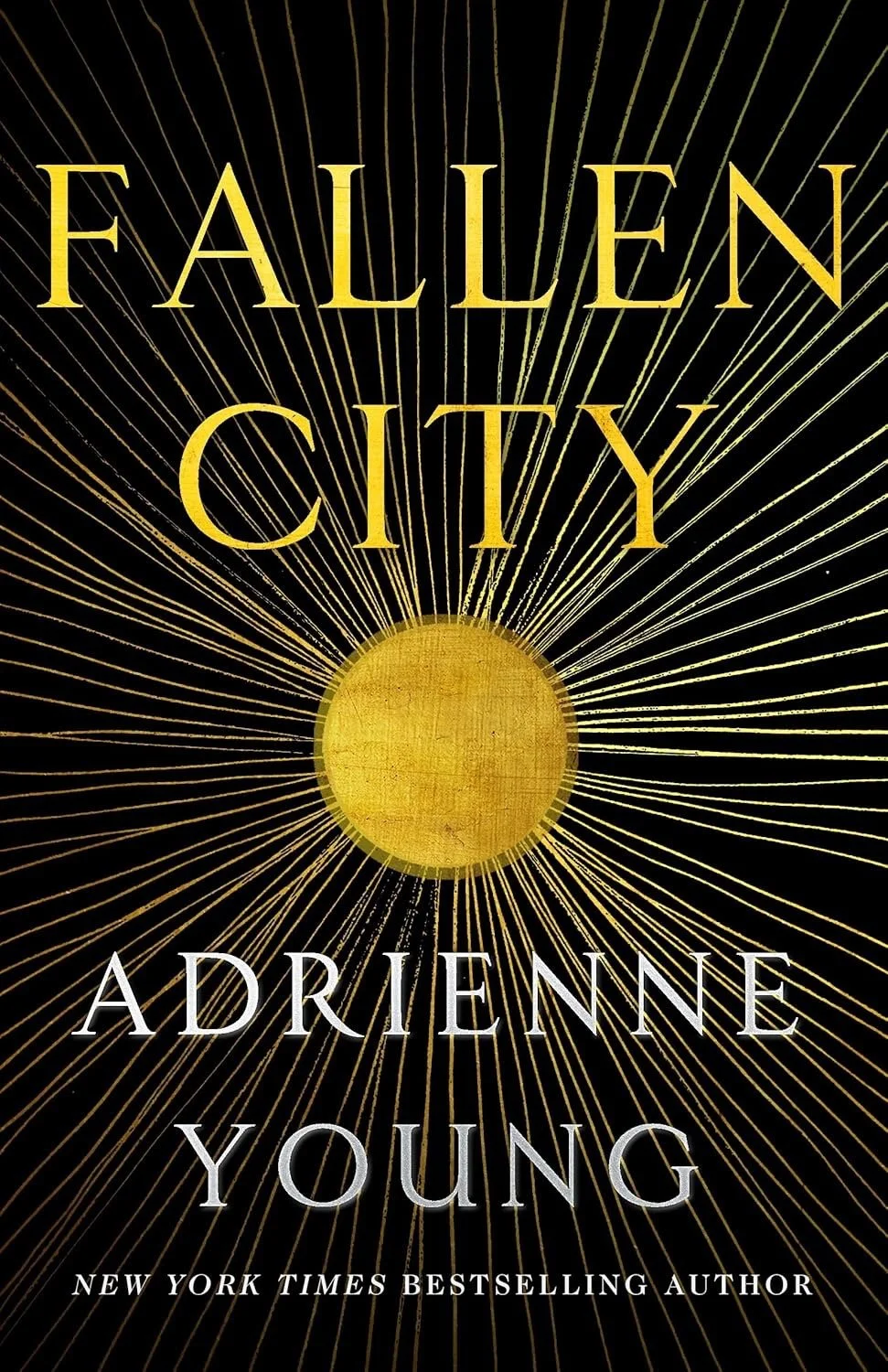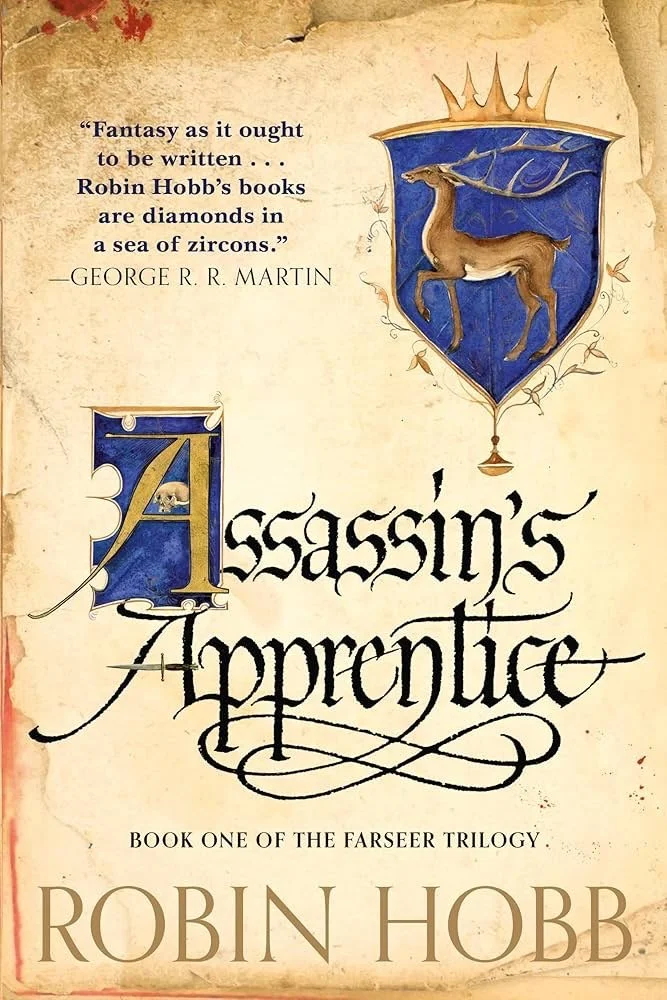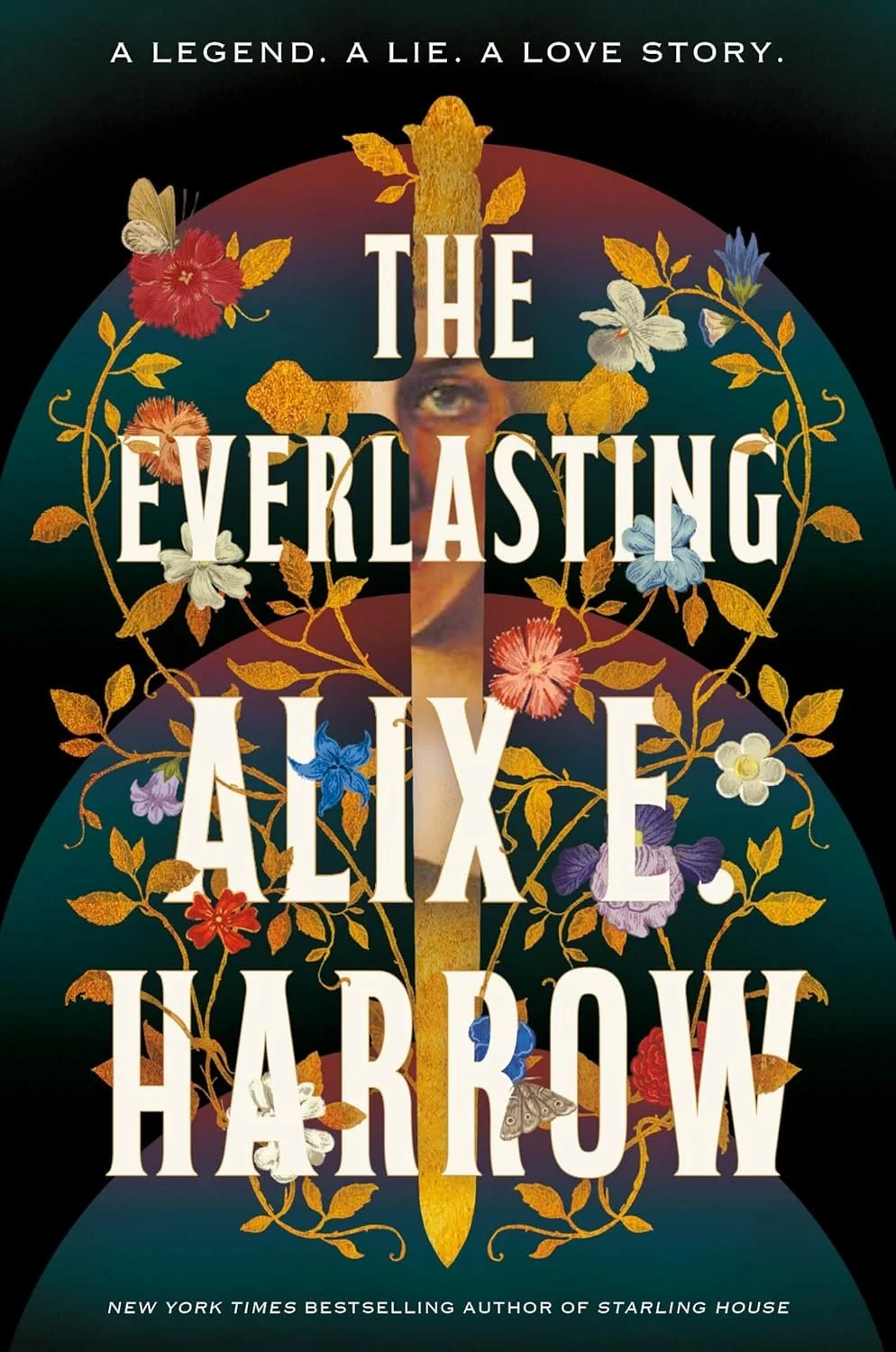Fallen City — Book Review with Content Warnings
Author: Adrienne Young
Genre: Fantasy romance, Political fantasy
Series: Fallen City Duology #1
Age Rating: Mature teens & adults; suitable for older teens, but the themes and pacing are more adult in tone and complexity.
Synopsis
Isara is a boiling kettle of a city, ready to blow with the slightest provocation. Maris Casperia is the daughter of a Magistrate, raised by the elite and born to cast her vote alongside the other ruling families. Luca Matius is the low-born adopted son of a rival Magistrate. The two find an unlikely love amid political turmoil, and the ensuing war might be enough to tear them apart forever.
Content Warnings
General Rating: Teen+ (PG-13 / TV-14 /14A)
Spice Rating: Moderate—sexual activity is implied conversationally, open-door intimacy in chapter 45
Violence Rating: Severe—sword and battle violence, war brutality, executions
Profanity Rating: None
Other Trigger Warnings: suicide, self-harm, flashbacks, child abuse/neglect, war themes, blood/gore, death of a parent, mass killings, murder
Overall Rating: 4.75/5
I’m shook. Fallen City gripped me and wouldn’t let go.
“Enjoy” isn’t the right word to use for a Greco-Roman tragedy, which is exactly what Fallen City is. It is intensely political and deeply emotional, asking questions about the rights and dignity of all humans and the powers that are entrusted to provide them. Told through the lens of dual first-person perspectives, the war narrows on our two lovers, Maris and Luca, and we find that love isn’t, in fact, enough to save the world. It’s a brutal, yet artful, critique of the doe-eyed optimism of the romance genre in juxtaposition to the weighty realities of war. It’s not a perfectly written story, but I absolutely loved it.
What I Liked
The emotional intensity of finding love during political upheaval, and the reality that love isn’t enough to win it all. Young’s writing style is intense and emotionally gripping; I found myself turning pages faster just to find out what would happen next.
The realities of war, ambition, and politics: War is brutal. There is no winner. Young explores this carefully, with precise strokes, as both sides of the city fight for their ambitions and survival. The tale is as old as time—the elite wish to keep all resources for themselves, leaving the poor to starve, and the poor have had enough, rising to destroy the elite no matter the cost.
War is personal: Young discusses complex political maneuvering from within a first-person perspective, which helps the reader understand that politics is not something done at a distance, but affects and influences each individual deeply. It’s a clever narrative choice.
What I Didn’t Like
Timeline jumps: It’s hard enough to keep track of two first-person POVs, never mind adding two different timelines to the mix. It might have been clearer with definite timestamps instead of vague “Now” and “Before” timelines. However, I’ll add that the dual timelines were successful in adding tension to the plot.
Bending the Greek grammar rules: I’ve studied Greek, and the endings to nouns and names indicate their femininity (ending with an -a) or masculinity (ending with -n or -s). Therefore, Ophelia is feminine and Ophelius is masculine; Vitrasia is feminine and Vitrasian is masculine; Asinia is feminine and Asinian or Asinius is masculine. Young effectively disregards all Greek grammar rules regarding names and their proper endings. While I can understand our modern proclivity for gender neutral names, it leads to reader confusion.
Themes and Reflections
The illusion of power: What is power and who holds it? Maris and Luca optimistically believe that things will be different when they become Magistrates, but what happens is that they end up “playing the same twisted game they all were.” The idealism of youth fades when the reality of survival kicks in.
Is love enough to win it all? Too many romances declare loudly that love is enough to heal all wounds and restore all kingdoms. Fallen City does the opposite; the reality is that love doesn’t result in immediate peace between opposing sides. It might mean that the two lovers end up on opposite sides of the river—permanently. I loved the realism of this (and of course, I know that many readers would be terribly upset by this not-happily-ever-after ending).
“This was what I’d wanted—to wear the white robes and cast the judgment stone in defiance of the Forum. But here I was, playing the same twisted game they all were.”
Writing Style
Emotionally intense prose
Resonant, fragmented pace (due to timeline jumps)
Foreboding, tense atmosphere
Vibrant, complex, and believable first-person POVs
Strong, sharp dialogue
Derivative, atmospheric worldbuilding (Greco-Roman inspired)
Moving, gripping narrative
Tropes
Court intrigue
Corruption of power
Foretold hero/Chosen One
Humble beginnings
Man vs. society
More Like This
Dark Shores by Danielle L. Jensen
The Jasmine Throne by Tasha Suri
Greek tragedies
Publisher Info
Publisher: Saturday Books
Release Date: November 4, 2025
eARC received from NetGalley with thanks!





Book review with content and trigger warnings for Among the Burning Flowers by Samantha Shannon